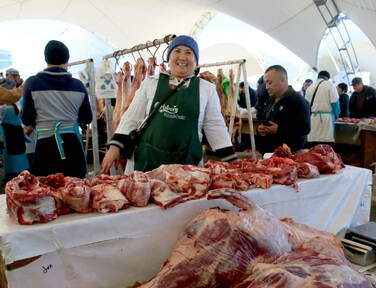On the sanctions and how to avoid them – Benjamin Bidder, Gerald Traufetter and Lisa Goldschmidtböing in Der Spiegel:
‘As a trading center, a country could hardly be more poorly situated than Armenia. The state of 3 million in the barren mountains of the South Caucasus is wedged between two hostile neighbors: Turkey to the west, and Azerbaijan to the east. To the south, Armenia shares 44 kilometers (27 miles) of border with Iran, also not exactly a champion of global trade.
And yet Armenia has seen a rapid growth in its foreign trade in recent months, largely thanks to its bigger neighbor to the north: Armenia has quadrupled its exports to Russia within two years, to around $2.5 billion. This is an enormous sum for a country whose total economic output recently didn’t even reach $20 billion.’
(…)
‘Is Armenia helping its neighbor Russia poke holes in the Western sanctions regime? So far, punitive economic measures have failed to cause lasting damage to the Russian economy. Nor have they stopped Vladimir Putin’s war machine.
According to the official Russian statistics agency Rosstat, Russia's economic output declined by 2.1 percent in 2022. For a time, the German government had predicted a slump of up to 15 percent. The International Monetary Fund has now even revised its current forecast for the country upward, most recently to show growth of 0.7 percent. Russia would thus grow faster than the German economy in 2023.’
(…)
‘But it would mean a lot of work for German officials. Apart from Armenia, many other countries buy conspicuous amounts of products made in Germany. In the case of Kazakhstan, for example, export revenues of German companies increased by 210 percent compared to the average from 2018 to 2020. For Kyrgyzstan, the increase is as high as 1,157 percent. The changes in trade flows are so massive that analysts at the European Bank for Reconstruction and Development are even speaking of a "Eurasian Roundabout."’
(…)
‘But does that explanation go far enough? German machinery manufacturers have indeed significantly expanded their Kazakhstan business: They recently had export revenues that were 297 percent above the average of previous years. There was an increase in motor vehicle export revenues of 778 percent, and 242 percent for optical products. That contrasts with Kazakhstan’s economic growth of a modest 3.2 percent last year. And even the additional demand from several tens of thousands of immigrant Russian IT specialists can't really explain the explosion in exports.
"There are simply far too many holes in the sanctions regime," says economist and sanctions expert Gabriel Felbermayr, who heads the Austrian Institute of Economic Research (WIFO) in Vienna. He says that while it is true that some Asian industrialized countries, such as South Korea and Japan, have joined the Western measures, overall, the EU and the U.S. haven’t really succeeded in getting more countries on their side. As such, he argues, the effect has been "much less than with the comprehensive embargoes against North Korea or Cuba." He argues that even the threat of secondary sanctions against sanction-breakers would have little effect. "This blunts sanctions as weapons," Felbermayr says.’
(…)
‘The consequences of that are reflected in Turkey's official trade statistics. Although the EU has banned the export of certain ball bearings to Russia to prevent their use in the construction of military vehicles, Turkey has increased its shipments to Russia by more than 50-fold. At the same time, the country has noticeably ramped up its ball bearing imports from EU countries like Germany. A similar pattern can be seen with lubricating oils, which can also be used in the armaments sector. Turkey is acting "brutally opportunistically," says Felbermayr.’
(…)
‘Turkish Foreign Minister Mevlüt Çavuşoğlu has promised his U.S. counterpart Antony Blinken that Ankara will be vigilant about not exporting goods to Russia that could be used for military purposes. For his part, though, Turkish President Recep Tayyip Erdoğan wants to keep the door open to Russian President Vladimir Putin. The inauguration of the Akkuyu nuclear power plant in Turkey built by Russia’s Rosatom is scheduled for the end of April. Erdoğan wants Putin to attend the ceremony. He is proud, he has said, that the "Western club" could not succeed in dragging Turkey into an "environment of war against Russia."’
Read the article here.
I remember how in 2009 people in Romania at the border (Danube) with Serbia told me how great the sanctions against Serbia were for the smuggling business.
They regretted that the sanctions were over.
And they had no comment on the political reasons for the sanctions. ‘Politics.’ They shrugged their shoulders.
Sanctions are rarely effective. They might be better than nothing, symbolism can be important, but the side effects (210 percent more imports to Kazakhstan from Germany) are immense.
